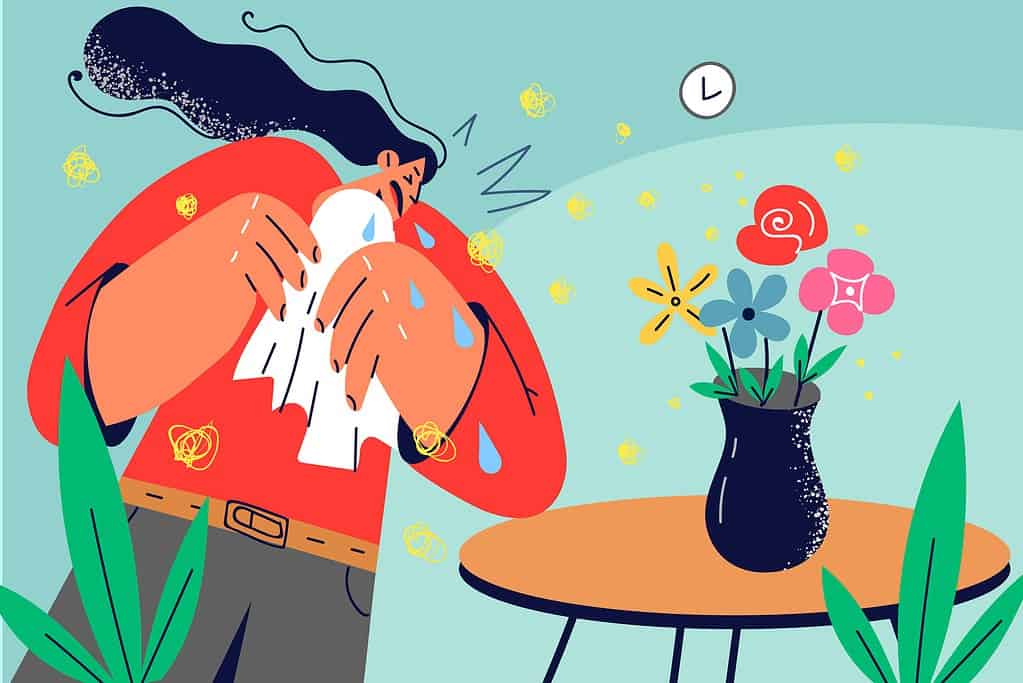Master Your Allergies!

BDD – GMD
In a small town in the south of Argentina, lived a boy named Toby. His uniqueness lay in an unusual quirk: he was allergic to almost everything under the sun.
__________
Like other children, Toby couldn’t enjoy games in the field or fun afternoons in the park. The simplest activities were inaccessible to him, like petting a dog or enjoying an ice cream. He was unable to ride his bike by the lake, play soccer, or have picnics with his family.
One day, Toby looked out of his bedroom window and saw a beautiful garden filled with brightly colored flowers. Despite the risk of an allergic reaction, he couldn’t resist exploring this botanical paradise because of his curiosity. Cautiously, he approached the garden, protecting his face with a mysterious mask. And then, something unexpected happened. The moment his foot touched the garden soil, his allergies magically disappeared.
Toby didn’t experience sneezing or discomfort but rather an immense feeling of happiness and calm. He spent hours exploring this magical oasis, soaking in the beauty surrounding him and delighting in the captivating aromas. Despite its happy ending, this story unveils a bleak reality: a staggering 40% of the global population is currently battling allergies.
In the 21st century, allergies have reached pandemic proportions on a global scale, primarily attributable to both pollution and dietary shifts.
__________
🟥
Do you ever wonder what allergies are? It’s fascinating how a tiny substance can cause a big body reaction. Let’s dive into allergies and explore what exactly they are.
__________
They are exaggerated reactions of our body to certain substances, such as pollen, that trigger an incorrect immune response. Occasionally, this reaction becomes so excessive that it ends in dangerous anaphylactic shock. Childhood is typically when allergies start, and they can last forever. They don’t have a permanent cure, but there are treatments to control the symptoms.
1️⃣
Pollen allergy. Originated mainly by trees such as bananas, olives, grasses, and cypresses, this allergy is a nightmare for nature lovers. Keep your windows closed during the day to enjoy an incredible home and maximize the outdoors. Take advantage of the late afternoon or after a rainy to do outdoor activities.
2️⃣
Allergy to mites. These tiny arachnids that live in dust and damp places can cause symptoms of allergic rhinitis and, sometimes, asthma. The key is maintaining cleanliness in beds, furniture, and carpets.
3️⃣
Food allergies. Allergic reactions can happen soon after eating specific foods like nuts, shellfish, fruits, fish, eggs, milk, wheat, soy, or peanuts. Learning to know the foods that suit us is the key.
4️⃣
Allergy to animal hair. Who could resist the company of an adorable dog or cat? But the dander these furry friends release can be challenging for those with allergies. The choice is between saying goodbye to pets or taking preventive measures.
5️⃣
Insect allergy. Insect stings, like bee stings, can cause severe allergic reactions including swelling, hives, and breathing problems. The risk of anaphylactic shock is real.
6️⃣
Mold allergy. Keeping the home well-ventilated and avoiding humid environments is essential to prevent this allergy.
7️⃣
Latex allergy. Avoiding latex products, such as gloves, condoms, and mattresses, is the key to keeping symptoms at bay.
8️⃣
Allergy to medications. Some people may be allergic to penicillin and aspirin. These allergies can cause anything from hives to breathing difficulties, requiring attention.
9️⃣
Allergy to cosmetics. Fragrances, lipsticks, and other products can cause allergic skin reactions or rhinitis. Choosing quality products is crucial.
🔟
Nickel allergy. Jewelry, coins, and everyday nickel objects can cause skin rashes and unpleasant symptoms. The key is to opt for hypoallergenic jewelry.
_____
Antihistamines help treat allergies by reducing histamine production, which causes inflammation in tissues exposed to allergens. Adrenaline is necessary in severe cases by opening the airways and accelerating the heart rate, avoiding anaphylactic shock.
In some people, allergies can trigger asthma attacks. This is known as “allergic asthma” or allergy-induced asthma. Allergies can trigger inflammation in the airways of these people, which in turn can trigger asthma symptoms. Common allergens that can trigger these symptoms include pollen, dust mites, animal dander and certain foods. Not everyone with allergies will develop asthma, and not everyone with asthma has allergies as a trigger. Asthma can have multiple causes and triggers, including genetic factors, respiratory infections, exposure to airborne irritants and more.
__________
🟡 🔴 🔵 REMEMBER
Please note that the information provided is for general understanding purposes only. It is not intended to replace the advice of a qualified health professional. Knowledge and prevention are the keys to staying healthy in a world of allergic challenges.
__________

